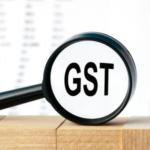GST Update: Circulars issued post the 54th GST Council Recommendations

Pursuant to recommendations of the 54th GST Council meeting held on 9 September 2024, the Central Board of Indirect Taxes and Customs (CBIC) has issued various clarificatory circulars. We have summarized the circulars below and explained the clarifications which should put to rest certain ambiguities faced by the industry.
- Circular No. 233/27/2024-GST – Refund of IGST for exporters of goods
Rule 96(10) of Central Goods and Services Tax Rules, 2017 (CGST Rules) restricts exporters of goods to avail refund of Integrated Goods and Services Tax (IGST), if certain (specified) benefits/ exemptions were claimed while importation of raw materials/ inputs used in such exports. This circular specifically deals with benefits availed under Notification No 78/2017-Customs dated 13 October 2017 and Notification No 79/2017-Customs dated 13 October 2017.
Multiple amendments and varied interpretations of Rule 96(10) of CGST Rules, led to significant disputes resulting in blockage of refunds. Vide Notification No 16/2020-CT dated 23 March 2020, it was notified that the refund restrictions of Rule 96(10) will not attract if the exporter of goods had availed exemption/ benefits of only ‘Basic Customs Duty’, whilst discharging IGST and Compensation Cess (as applicable). While this was a welcome relaxation, the question arose whether this relaxation will also apply if the initial non-payment of IGST and Compensation Cess (during importation) was regularized subsequently by making payment of such IGST and Compensation Cess along with applicable interest.
The CBIC has now clarified that the export of goods can avail refund of IGST, post regularization of IGST and Compensation Cess, even if exemption/ benefit was initially claimed during importation. The regularization will be complete on payment of taxes/ cess and reassessment of bill of entry through the jurisdictional customs authorities.
- Circular No. 232/26/2024- GST – Place of supply for data hosting services
The question arose as to whether ‘data hosting’ services provided by service providers located in India, to ‘cloud computing’ service providers located outside India can be treated as an ‘export of service’. This circular clarifies the ‘place of supply’ of such ‘data hosting’ services.
- Data hosting services do not qualify as an ‘Intermediary’
Section 13(8)(b) of the IGST Act provides that if any service qualifies as an ‘intermediary’, then the place of supply of such service will be in India and thus liable to GST even if such service is rendered to a service recipient located outside India.
The circular clarifies that a data hosting service provider renders services to a cloud computing service provider on a ‘Principal-to-Principal’ basis. The service provider does not act in the capacity of an agent or a broker but renders services on its own account. Also, there appears to be no contact between the data hosting service provider and the end users/ consumers/ subscribers of the overseas cloud computing service provider.
Accordingly, it is clarified that the services provided by data hosting service providers located in India do not fall within the definition of ‘intermediary’ under the IGST Act, and thus the place of supply of such services cannot be determined under Section 13(8)(b) of the IGST Act.
- Data hosting services are not in relation to goods ‘made available’ by the recipient of services
Section 13(3)(a) of the IGST Act provides that if any services are supplied in respect of ‘goods’ which are required to be made physically available by the recipient of services, then the place of supply of such service will be in India (i.e. the place where the services are actually performed) and thus liable to GST even if such service is rendered to a service recipient located outside India.
The circular clarifies that data hosting service providers render comprehensive services which includes through its premises, hardware, software and personnel. The services inter alia include essential infrastructure such as ventilation, cooling system, uninterrupted power supply, network connectivity, security systems, etc. It is a combination of these services which essentially qualify as data hosting services, and all of these are primarily owned by the data hosting service provider and not ‘made available’ by the cloud computing service provider.
Accordingly, it is clarified that the services provided by data hosting service providers located in India do not fall within the definition of Section 13(3)(a) of the IGST Act as goods are not made available (by the cloud computing service provider) for rendition of services, and thus the place of supply of such services is not the location of service provider i.e. in India.
- Data hosting services are not supplied directly in relation to an ‘immovable property’
Section 13(4) of the IGST Act provides that if any services are supplied directly in relation to an ‘immovable property’, then the place of supply of such service will be the place where the immovable property is located (in the instant case – India) and thus liable to GST even if such service is rendered to a service recipient located outside India.
The circular clarifies that data hosting service is not a passive supply involving only an immovable property. This is a comprehensive service involving owned/ leased premises, ventilation, cooling system, uninterrupted power supply, network connectivity, security systems, backup generators, human resources, fire suppression systems, firewall services, monitoring/ surveillance services, etc. A combination of the aforementioned services is required to render data hosting services and not merely an immovable property.
Accordingly, it is clarified that the services provided by data hosting service providers located in India do not fall within the definition of Section 13(4) of the IGST Act as the services are not supplied directly in relation to an immovable property, and thus the place of supply of such services is not the location of immovable property i.e. in India.
Consequent to the above, the circular clarifies that the place of supply of data hosting services should be determined based on the default provision i.e. as provided under Section 13(2) of the IGST Act. Accordingly, the place of supply will be determined based on the location of the service recipient and thus, will be eligible for export benefits if the cloud computing service provider is located outside India.
- Circular No. 231/23/2024- GST – Input Tax Credit (ITC) on demo vehicles
Section 17(5)(a) restricts availability of ITC on motor vehicles for transportation of persons having approved capacity of not more than thirteen persons (including the driver). An exception has been carved out to allow ITC in cases where the motor vehicle is used for following taxable supplies:
- Further supply of such motor vehicles
- Transportation of passenger
- Imparting training on driving such motor vehicles
Question arose whether ITC is available on purchase of demo vehicles by authorized car dealers and capitalized in the books of account. Demo vehicles are purchased by authorized car dealers to provide trial runs and to demonstrate the vehicle features to potential buyers.
The circular has clarified that ITC on demo vehicles is not restricted under Section 17(5)(a) and falls under the exception carved out to be eligible to avail the ITC. The words used in the exception are “further supply of SUCH motor vehicles” and not “further supply of SAID motor vehicles”. Accordingly, since the demo vehicle is used to promote sale of similar motor vehicles, the same can be considered as used for ‘further supply of such motor vehicles’, and accordingly ITC can be availed on demo vehicles.
In cases whether the demo vehicle is used for other purposes, such as for transportation of staff and not to promote sale of similar vehicles, the ITC on such demo vehicles cannot be availed. Also, if the authorized vehicle dealer is acting only as an agent or provides only marketing services through the demo vehicle (and is not involved in actual sale of such vehicles on his own account), then ITC on such demo vehicle cannot be availed.
For demo vehicles capitalized in the books of account, availability of ITC is subject to conditions prescribed under Section 16(3) of the CGST Act. Accordingly, if the input tax is included (along with the cost of such demo vehicle) for the purposes of claiming depreciation under the Income-tax Act, 1961, then ITC cannot be availed.
- Circular No. 230/24/2024- GST – Place of supply for advertising services
The question arose as to whether ‘advertising’ services provided by advertising companies/ agencies located in India to service recipients located outside India can be treated as an ‘export of service’. This circular clarifies the ‘place of supply’ of such ‘advertising’ services.
- Advertising services do not qualify as an ‘Intermediary’
Section 13(8)(b) of the IGST Act provides that if any service qualifies as an ‘intermediary’, then the place of supply of such service will be in India and thus liable to GST even if such service is rendered to a service recipient located outside India.
The circular clarifies that an advertising service provider has a comprehensive agreement with its foreign clients to render various services. As a part of this comprehensive agreement, the Indian advertising company also enters into an agreement with media owners in India for procurement of media space. Both these agreements are on a principal-to-principal basis, and there is no direct agreement between the media owners and the foreign client. The advertising agency does not act in the capacity of an agent or a broker for the foreign client but renders services on its own account.
Accordingly, it is clarified that the advertising services provided by service providers located in India do not fall within the definition of ‘intermediary’ under the IGST Act, and thus the place of supply of such services cannot be determined under Section 13(8)(b) of the IGST Act.
- Representatives of foreign clients in India or the target audience in India cannot be considered as recipient of services
Section 2(93) of the CGST Act provides that the person liable to pay the consideration for services supplied, is the ‘recipient’ of such services. Typically, the Indian advertising agencies issue its invoice to the foreign clients and not on the consumers or the target audience that watches the advertisement. In cases where Indian representatives of the foreign client interact with the Indian advertising agency, the agreement is still executed with the foreign client and hence, the recipient of services is the foreign client. Payment for services rendered by the Indian advertising agency is also paid by the foreign clients.
Accordingly, it is clarified that the recipient of services rendered by the Indian advertising agency is the foreign client and not the Indian representative or the target audience.
- Advertising services cannot be considered as performance-based services
Section 13(3)(b) of the IGST Act specifies that if any services are supplied to an individual and requires the physical presence of the service recipient along with the supplier of services, then the place of supply of such services will be in India (i.e. the place where the services are actually performed) and thus liable to GST even if such services are rendered to a service recipient located outside India.
For rendition of advertising services, there is no requirement for the service recipient (if such service recipient is an individual) to be physically present to receive such services. Accordingly, it is clarified that the place of supply for advertising services cannot be determined under Section 13(3)(b) of the IGST Act.
However, there can be cases where the advertising agency is acting in the capacity of an agent to procure media space for foreign clients. In such a scenario, the agreement will be directly between the media owners and the foreign clients, resulting in the Indian advertising agency being classified as an ‘intermediary’ and liable to GST on its invoice raised to foreign clients.
Consequent to the above, the circular clarifies that the place of supply of advertising services should be determined based on the default provision i.e. as provided under Section 13(2) of the IGST Act. Accordingly, the place of supply will be determined based on the location of the service recipient and thus will be eligible for export benefits if the service recipient is located outside India.
The information contained in this document is not legal advice or legal opinion. The contents recorded in the said document are for informational purposes only and should not be used for commercial purposes. Acuity Law LLP disclaims all liability to any person for any loss or damage caused by errors or omissions, whether arising from negligence, accident, or any other cause.



